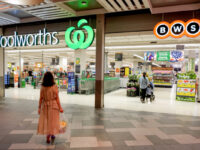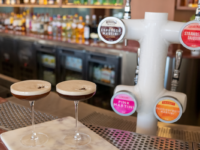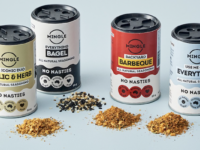Just one year ago, supermarket rivals Coles and Woolworths were fighting it out for the top spot as Australia’s most trusted brand. Fast forward to today, Woolworths is the fourth and Coles is the fifth most distrusted brand in the country. According to Roy Morgan’s latest quarterly rankings, Woolworths was the biggest loser, sliding 194 places to be the fifth most distrusted brand in the June quarter – almost mirroring the slide taken by rival Coles in the previous March quarter. “Bunni
Unlock indepth features,executive
interviews and quarterly magazines
Just one year ago, supermarket rivals Coles and Woolworths were fighting it out for the top spot as Australia’s most trusted brand. Fast forward to today, Woolworths is the fourth and Coles is the fifth most distrusted brand in the country.According to Roy Morgan’s latest quarterly rankings, Woolworths was the biggest loser, sliding 194 places to be the fifth most distrusted brand in the June quarter – almost mirroring the slide taken by rival Coles in the previous March quarter.“Bunnings is the only ‘survivor’ from the top rankings of a year ago, in third at the time behind then most trusted brands Woolworths and Coles. Both are now among Australia’s five most distrusted brands for the first time,” said Roy Morgan CEO Michele Levine in a statement.“The rapid slide down the rankings for both major supermarkets – which have each slid more than 200 spots in the rankings this year – shows how quickly distrust can gain momentum and devalue a brand’s reputation,” she added.Following the ongoing allegations that “The Big Two” have been price gouging and misrepresenting discounts, the German supermarket chain Aldi has risen to be the third most trusted brand by Australians. “The high trust ratings for Aldi, and independent grocer IGA (13th), show that the distrust for the two majors is not industry-wide, as it is their brands specifically which have become associated with ‘price gouging, high profits and corporate greed’ over the last year whereas as their closest competitors haven’t,” said Levine.Speaking out Consumers, government agencies and non-government organisations have been criticising Coles and Woolworths’ profits – but most recently the backlash was taken offline and in-store.A university student and former Woolworths employee, Megan Guy, confronted Woolworths CEO Amanda Bardwell in a NSW Woolworths store – the video capturing the interaction has since gone viral and garnered more than 1.5 million views.“What do you have to say that your company is profiting off price gouging during the context of the cost-of-living crisis,” the student can be heard saying in the viral video.“Thank you for reaching out to talk to us… We’re doing everything that we can to recognise that customers are doing it tough, to make sure they are able to get great prices at Woolies,” Bardwell replied.“Millions of people in Australia right now have to skip meals in order to survive, your company has just bought a full extra supermarket… You can continue to make big bucks while working-class people suffer… Can you sleep at night doing that?” Guy’s line of questioning continued.According to Guy, in an opinion piece published on Red Flag, she seized the opportunity to confront Bardwell because supermarket industry executives have grown “accustomed to avoiding the people whose lives they are destroying”.“The response I got was baffling. It was like receiving an AI-generated email reply, ‘Thank you for reaching out to us’,” she added.Moving onCurrently, there are more than 20 million TikTok posts related to Australian grocery prices.Australian consumers are not just using social media to complain about inflation and the allegations against Coles and Woolworths – instead, they are sharing receipts and tools to save money on their everyday grocery shops.Adrian Williamson, known on TikTok as the Price Check Guy, has created a free downloadable plugin for the Coles and Woolworths online shopping portals.His plugin allows customers to see the price history data for each product, allowing customers to see when the item goes on sale and identify any patterns to determine if they should wait for a price drop – or purchase from a rival supermarket. Meanwhile, consumers have also taken to TikTok to share supermarket hauls comparing like-for-like products from Coles and Woolworths with Aldi’s more competitive price points.The consumer speculation that Aldi is the affordable supermarket alternative was confirmed earlier this year in a report by Choice. The report compared 14 commonly bought grocery items, including milk, bread, sugar, pasta, tea bags and two fresh fruits and vegetables, and found that Aldi had the cheapest groceries nationwide, though the methodology of the report was criticised by the Australian Retailers’ Association (ARA).“Choice has confirmed that the products it has compared are not like-for-like and in the case of seven products, include comparisons between premium national brands at Coles and Woolworths with Aldi’s private label,” Paul Zahra, the ARA’s outgoing CEO said.“Customers make their own comparisons between supermarkets, and they deserve to be able to make judgments for themselves with the full information that Choice has collected.”According to Choice, Coles and Woolworths combined make up 65 per cent of Australia’s supermarket sector – Aldi contributes 10 per cent to the sector.


















